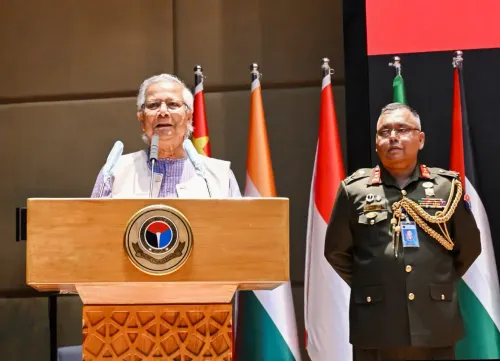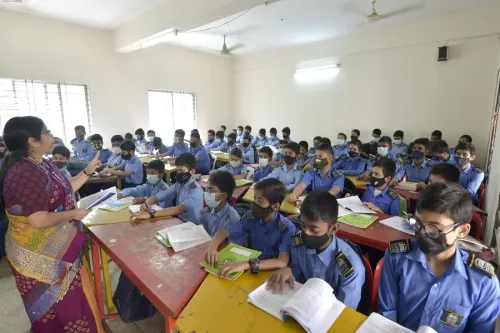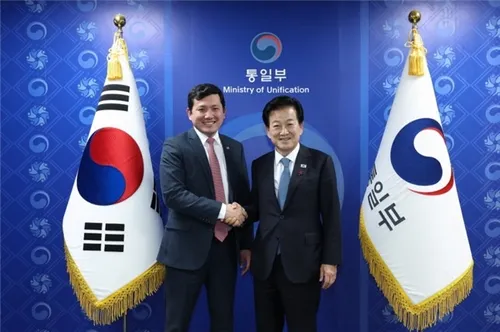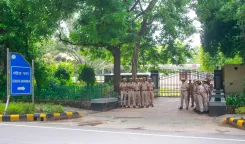Is Beijing Ready to Collaborate with India for Modernization?
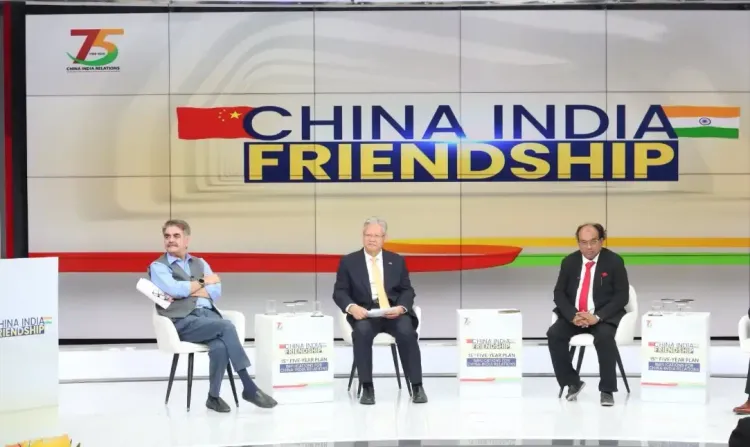
Synopsis
Key Takeaways
- China and India are focusing on modernization.
- Collaboration could unlock $1.4 trillion in new market opportunities.
- Bilateral trade has seen an 11% increase this year.
- Direct flights and tourism ties have been restored.
- Both nations emphasize the importance of multilateralism.
New Delhi, Nov 25 (NationPress) China's Ambassador to India, Xu Feihong, stated on Tuesday that Beijing is eager to collaborate with India in its quest for modernisation, emphasizing that development serves as the common foundation for both nations.
During a seminar titled 'China's 15th Five-Year Plan: A New Vision for Development and Opportunities for China-India Collaboration', the Ambassador underscored the necessity for the two nations to align their development goals and work together towards modernisation.
He expressed China's commitment to engage with India as an active participant in high-level pragmatic cooperation.
"Throughout the 15th Five-Year Plan, China will focus on bolstering the foundation of the real economy, promoting high-level technological self-reliance, and enhancing high-standard openness. This approach will generate more opportunities for collaboration among all nations, including India," the Ambassador remarked.
"We aim to modernize traditional sectors such as chemicals and machinery, potentially unlocking approximately $1.4 trillion in new market opportunities over the next five years. Additionally, we will nurture emerging sectors like new energy and advanced materials, likely leading to several trillion-dollar growth engines. Furthermore, we will strategically invest in future industries such as bio-manufacturing and 6G mobile communication, which could create an entirely new high-tech industrial ecosystem within the next decade," the Ambassador elaborated.
He continued, stating: "Currently, India is implementing significant strategies like 'Make in India'. China is prepared to enhance practical collaboration with India to expand mutual interests, ensuring that the citizens of both countries reap greater benefits from developmental outcomes."
The Ambassador also mentioned that China is open to welcoming more premium imports from India and encourages greater Indian investment in China.
Ambassador Feihong affirmed China’s readiness to partner with India as a champion of multilateralism.
Referring to the United States, he commented, "Certain major nations, in their pursuit of unilateral dominance, have frequently instigated trade conflicts and selectively applied international norms, creating significant challenges for developing nations. In light of the profound changes occurring globally and the rise of unilateralism, it is essential for China and India to unite, firmly oppose hegemony, and collaboratively guide multipolarity and economic globalization towards the right path, as the world expects, ensuring global governance is more just and equitable."
He noted that bilateral trade between India and China reached $115.2 billion in the initial nine months of this year, representing an 11 percent increase from the previous year.
Since April, India's exports to China have surged more than 10 percent year-on-year each month, with an impressive 42 percent increase in October.
He also highlighted that China has reinstated pilgrimage opportunities for Indians to Kangrinboqe Feng and Mapam Yuco (Kailash Manasarovar Yatra) in the Xizang Autonomous Region, while India has resumed issuing tourist visas to Chinese citizens, marking a return to normalcy in bilateral relations.
Direct flights between the Chinese mainland and India have also been restored, a development warmly welcomed by the citizens of both nations.
Ambassador Feihong concluded by mentioning the meeting between PM Modi and Chinese President Xi Jinping in Tianjin this year, which has provided direction for further enhancement and growth of bilateral ties.

